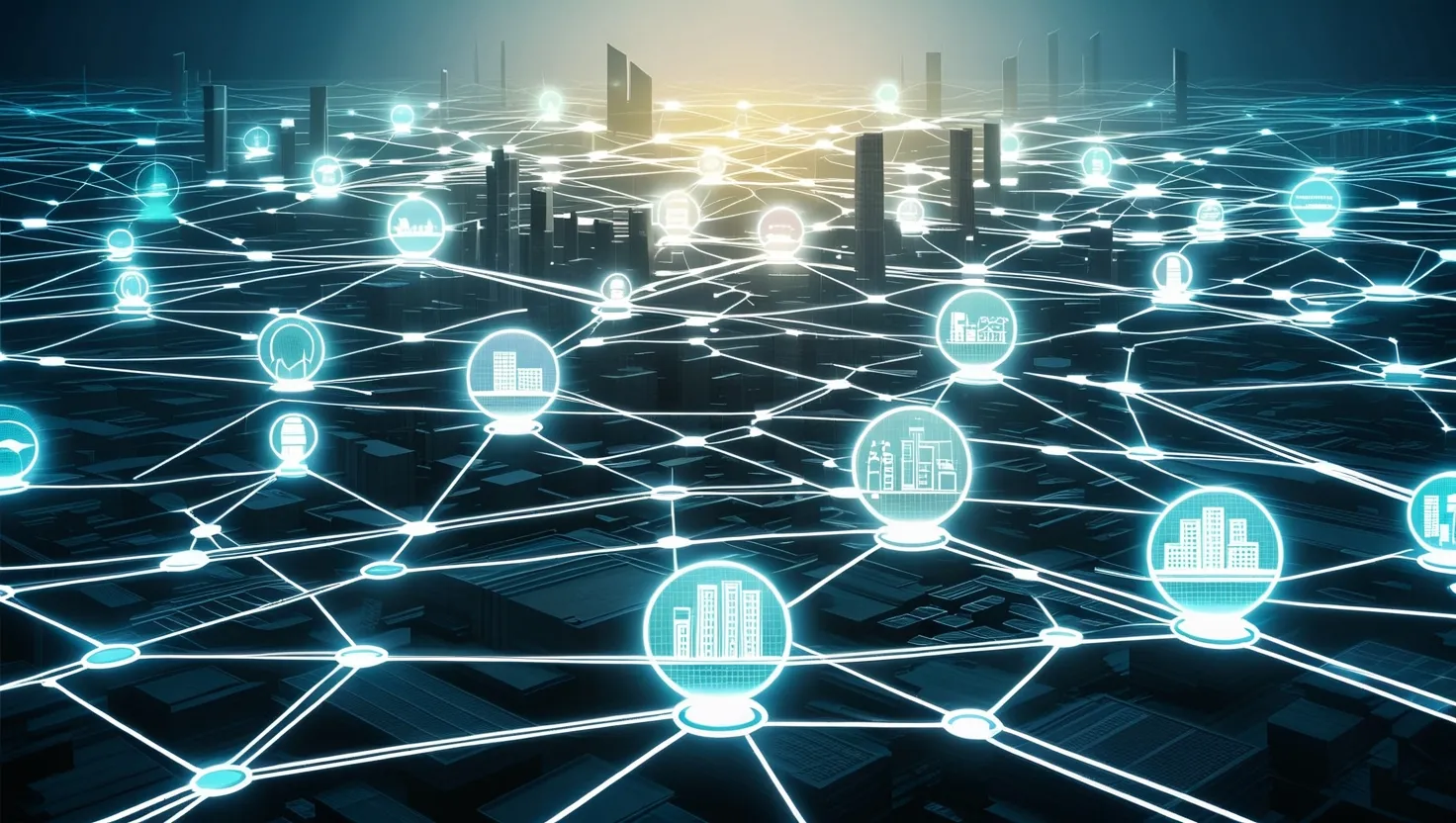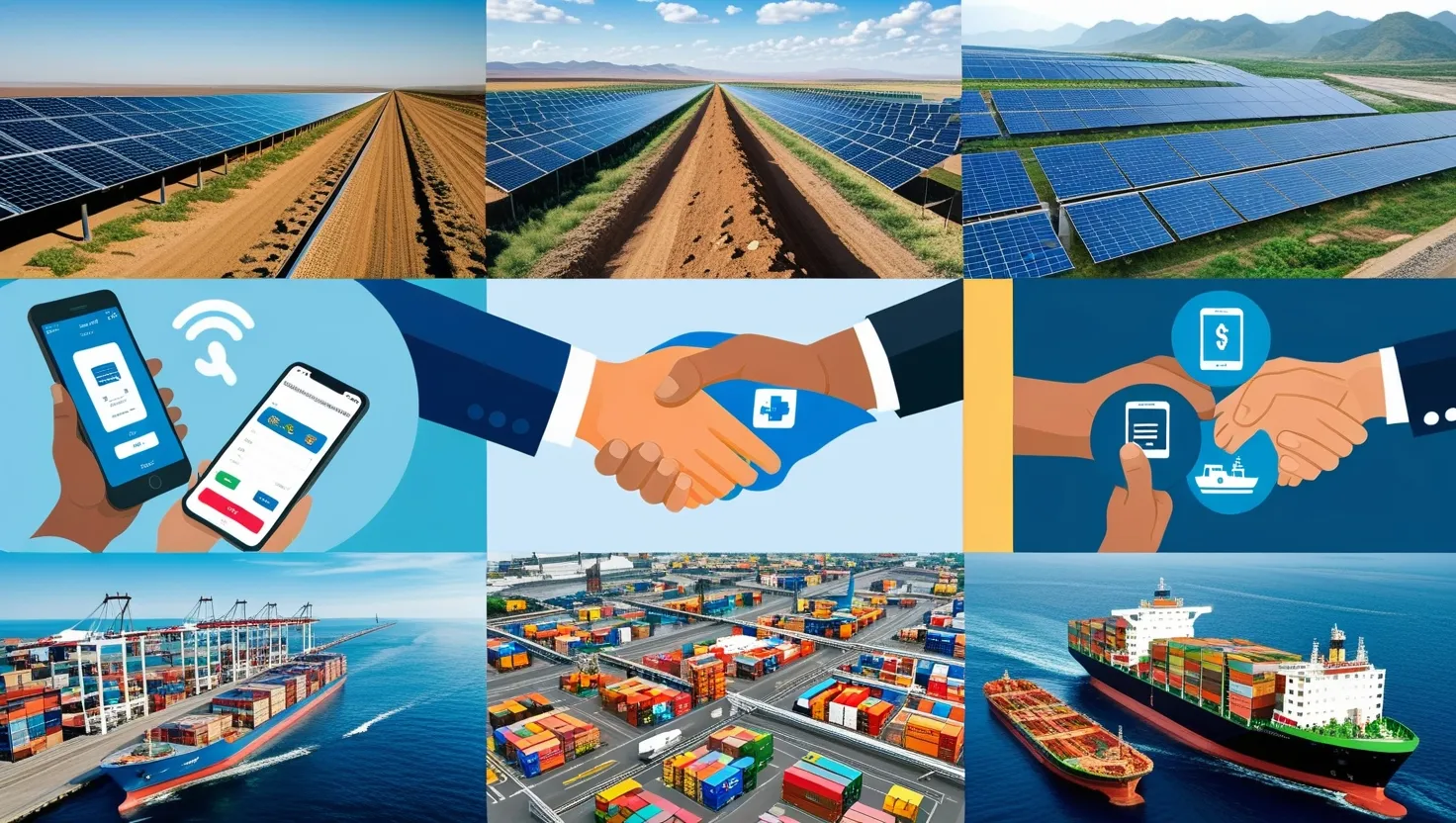As we stand at the threshold of a new era, it’s clear that Artificial Intelligence (AI) is not just a buzzword, but a transformative force that is reshaping the very fabric of our global industries. In 2024, AI has become an integral part of various sectors, each experiencing its own unique revolution.
Healthcare: The AI-Powered Medical Breakthrough
In healthcare, AI is no longer just an adjunct; it’s a game-changer. AI-powered diagnostics are revolutionizing the way diseases are identified and treated. For instance, AI algorithms can analyze vast amounts of medical data, including images and patient histories, to diagnose conditions with a precision that often surpasses human capabilities. This is particularly evident in the field of drug discovery, where AI tools are being used to identify novel proteins and genes that can be targeted to counteract diseases.
Companies like those leveraging AlphaFold are predicting the 3D structures of proteins, accelerating the design of drugs that can bind to these targets. This not only speeds up the drug discovery process but also reduces the costs associated with traditional methods. Moreover, AI is enabling high-fidelity molecular simulations, eliminating the need for physical testing and thereby reducing the time and cost of bringing new drugs to market.
However, this revolution also raises ethical questions. For example, who owns the data used to train these AI models? And how do we ensure that these advanced diagnostic tools are accessible to all, regardless of economic status? As AI continues to advance in healthcare, it’s crucial that we address these concerns to ensure equitable access to these life-saving technologies.
Finance: The AI-Driven Trading Floor
In the finance sector, AI has transformed the trading floor into a high-speed, data-driven environment. Algorithmic trading, powered by AI, executes trades at lightning speed, analyzing market data to make informed decisions that human traders could only dream of. This not only enhances efficiency but also reduces the risk of human error.
AI is also a stalwart in fraud detection and prevention. By analyzing transaction patterns, AI systems can identify anomalies that indicate fraudulent activity in real-time, protecting both the organization and its customers. This has significantly reduced the incidence of fraud, saving financial institutions millions.
But what about the jobs? As AI takes over more routine and analytical tasks, there is a fear that many roles in finance could become obsolete. However, this shift also opens up new opportunities for professionals to focus on more strategic and creative aspects of finance, such as risk management and portfolio optimization.
Manufacturing: The Rise of Smart Factories
Manufacturing is another sector where AI is making waves. Smart factories, equipped with AI-embedded devices, are revolutionizing production processes. Predictive maintenance, for instance, allows machines to predict when they are likely to fail, enabling proactive repairs and minimizing downtime. This not only increases efficiency but also reduces maintenance costs.
Companies like Mytra are pushing the boundaries even further with modular storage systems that can be assembled and optimized by robots. This modular approach to automation is not just about moving materials; it’s about creating a flexible and adaptable production environment that can respond to changing demands.
The ethical considerations here revolve around job displacement and the need for workers to acquire new skills. As automation increases, there is a risk that many manual jobs could be replaced. However, this also presents an opportunity for workers to transition into roles that require more complex problem-solving and innovation.
Agriculture: Precision Farming and the Future of Food
In agriculture, AI is transforming traditional farming practices into precision farming. By leveraging AI-powered analytics, farmers can gain deep insights into soil health, weather patterns, and plant growth conditions. This information allows them to apply targeted treatments, allocate resources more efficiently, and adopt sustainable farming practices.
Machine learning algorithms are pivotal in analyzing vast amounts of agricultural data, enabling precise predictions and decisions. For example, AI can predict crop yields, detect pests, and optimize resource management, all of which contribute to increased crop yields and reduced resource wastage.
The impact on the environment is also significant. Precision farming reduces the use of chemicals and water, making agriculture more sustainable. However, there are concerns about the cost of these technologies and their accessibility to small-scale farmers. Ensuring that these benefits are equitably distributed will be crucial as we move forward.
Retail: Personalized Shopping and Inventory Management
In retail, AI is creating personalized shopping experiences that were previously unimaginable. AI algorithms analyze customer data to offer tailored recommendations, enhancing the shopping experience and increasing customer satisfaction.
Inventory management is another area where AI is making a significant impact. By analyzing sales data and predicting demand, AI systems can optimize inventory levels, reducing stockouts and overstocking. This not only saves costs but also ensures that customers find what they need when they need it.
However, the use of customer data raises privacy concerns. Retailers must ensure that they are transparent about how customer data is used and protected. Moreover, the shift towards online shopping, driven in part by AI, has significant implications for brick-and-mortar stores and the jobs they support.
Transportation: Autonomous Vehicles and Traffic Optimization
In transportation, AI is driving the development of autonomous vehicles. These vehicles, equipped with advanced sensors and AI algorithms, can navigate roads safely and efficiently, reducing the risk of accidents and improving traffic flow.
AI is also being used to optimize traffic management. By analyzing real-time traffic data, AI systems can predict traffic patterns and optimize traffic light timings, reducing congestion and travel times.
But what about the ethical implications? As autonomous vehicles become more common, there are questions about liability in the event of an accident. Additionally, the widespread adoption of autonomous vehicles could lead to job displacement for drivers. However, it also opens up new opportunities for mobility services that are safer and more efficient.
Energy: Grid Management and Renewable Energy Forecasting
In the energy sector, AI is playing a critical role in grid management and renewable energy forecasting. AI algorithms can analyze weather patterns and energy demand to predict the output of renewable energy sources like solar and wind power. This allows for better integration of these sources into the grid, making energy supply more reliable and sustainable.
AI is also being used to optimize energy distribution, reducing energy wastage and improving the overall efficiency of the grid. Companies are leveraging AI to predict energy demand, allowing them to adjust supply accordingly and reduce the strain on the grid during peak hours.
However, there are concerns about the reliability of these systems and their ability to handle complex scenarios. Ensuring that these AI systems are robust and reliable will be essential as we move towards a more sustainable energy future.
Education: Adaptive Learning and Personalized Curricula
In education, AI is transforming the way we learn. Adaptive learning platforms use AI to tailor educational content to the individual needs of each student. This personalized approach ensures that students learn at their own pace, improving learning outcomes and student engagement.
AI is also being used to create personalized curricula, taking into account the strengths and weaknesses of each student. This not only enhances the learning experience but also helps teachers to focus on areas where students need the most support.
However, there are ethical considerations around data privacy and the potential for bias in AI algorithms. Ensuring that these systems are fair and transparent will be crucial as we integrate AI more deeply into our educational systems.
The Future of Work and Ethics
As AI continues to revolutionize these industries, it’s clear that the future of work will be significantly different. While AI will undoubtedly displace some jobs, it will also create new ones that we cannot yet imagine. The key will be in preparing workers for this shift, ensuring they have the skills needed to thrive in an AI-driven world.
Ethical considerations will also be at the forefront. From data privacy to job displacement, we must address these issues proactively to ensure that the benefits of AI are shared equitably. Companies leading the AI revolution must prioritize transparency, fairness, and accountability in their AI strategies.
In conclusion, the impact of AI on global industries is profound and multifaceted. As we continue down this path, it’s essential that we balance the efficiency gains and cost savings with ethical considerations and a commitment to ensuring that these technologies benefit everyone, not just a select few. The future is here, and it’s time to embrace it with open eyes and a clear vision.






